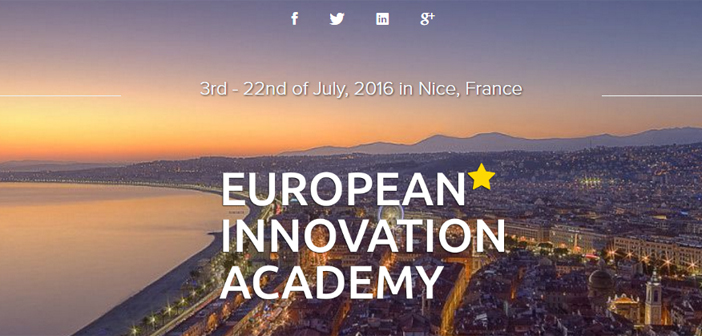Until July 22, the European Innovation Academy (EIA) is being held at the Saint-Jean d’Angély campus in Nice, in the Azurean city for the second consecutive year. It is the largest startup acceleration program in Europe, bringing together students from around the world in the field of digital innovations.
For 3 weeks, 550 students, primarily from technical engineering and business backgrounds, from the most prestigious universities in nearly 65 different countries, will compete in a grand competition.
The most innovative startup created at the end of this period will win the contest and may see its product progress from an idea to commercialization. These students will be trained and supported by a hundred speakers, including representatives from Silicon Valley companies. During this 2016 edition, 100 startups will be in competition.
The program is developed in collaboration with Google and globally recognized universities such as Stanford and UC Berkeley. According to Martin Omander, a program director at Google, it is possible to achieve as much with EIA as with other accelerators which last 3 to 6 months.
Ken Singer, director of the Sutardja Center for Entrepreneurship at the University of Berkeley, introduced this contest by easing and briefing the participants, combining humor and professionalism: “Who is European in the room?; Me, I’m English; Sorry madam, you are no longer part of Europe.”
He compares business life to the Tour de France to emphasize teamwork, the central theme of the competition. Relays are important, listening, but also conflicts. For him, conflicts need to be created immediately after the group is formed. Nothing should be uniform.
The groups that students will create to develop their startup must be complementary: One who has ideas “the dreamer”, a communicator “the politician”, a mediator “the glue”, a problem-finder “the detective”, the executor “the ninja”, etc.
The startups must be primarily focused on scalable technologies in the fields of mobility, travel, and digital.
They will have 3 weeks to challenge a highly competitive field and make their ideas become reality.
by Thibaut Bourru


